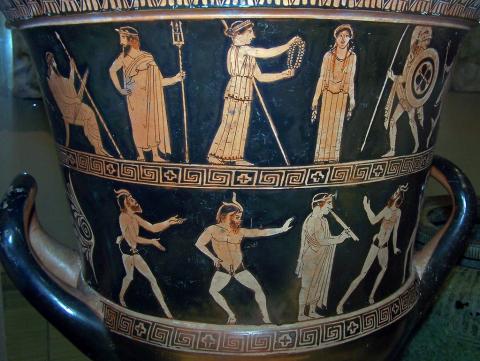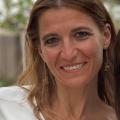Nina Papathanasopoulou
January 29, 2021
The Classics Everywhere initiative, launched by the SCS in 2019, supports projects that seek to engage communities worldwide with the study of Greek and Roman antiquity in new and meaningful ways. As part of this initiative, the SCS has been funding a variety of projects, ranging from reading groups comparing ancient and modern leadership practices to collaborations with artists in theater, music, and dance. Most of the projects funded take place in the U.S. and Canada, though the initiative is growing and has funded projects in the U.K., Italy, Greece, Belgium, Ghana, and Puerto Rico. This post centers on online reading and discussion groups that engage local communities and the broad public in the discussion of ancient texts and contemporary issues.
The study of antiquity can connect not only past and present, but also different generations, to build communities of all ages around shared study and discussion. This post focuses on the efforts, visions, and impact of three projects aimed at reaching communities of various ages and bringing their voices into the conversation. An ancient philosophy professor, a Classics professor, and a Classics Ph.D. student each received Classics Everywhere awards to create discussion groups in the midst of the pandemic, which respectively explore topics in philosophy, political issues through the lens of classical myths, and important social questions at the core of Greek mythology. Funding was used to compensate guest speakers, and also to make participation accessible to all by purchasing books or creating online materials.
Michael Vazquez, Teaching Assistant Professor and Director of Outreach at the Philosophy Department and The Parr Center for Ethics at the University of North Carolina at Chapel Hill, is running the Ancient Wisdom discussion group, a virtual discussion group especially for older adults in the Triangle Area in North Carolina. Partnering with Orange County’s Department of Aging, Vazquez geared the program primarily to senior citizens. His goal is twofold: first, to challenge prevalent assumptions about old age as a period of diminishment and loss and second, to give older adults in the Triangle Area an opportunity to participate in edifying programming that contributes to their own flourishing, especially during the isolation imposed by the pandemic.
The group began its meetings on Zoom in November and meets twice a month. Readings, brief introductions to the ancient texts and guiding questions are given in advance to help the participants prepare for each session. During the meeting Vazquez and volunteers from the UNC Philosophy Department briefly introduce the readings and then facilitate discussion according to the participants’ interests. The group began its readings with Plato, his Allegory of the Cave, his Ship of State metaphor and the ring of Gyges. They then moved on to Aristotle and the pursuit of happiness, Epicurus and Epicurean practices that might be viable today, and Stoicism. At the request of the participants, meetings are continuing with Cicero’s works on old age and friendship, and then with Augustine.
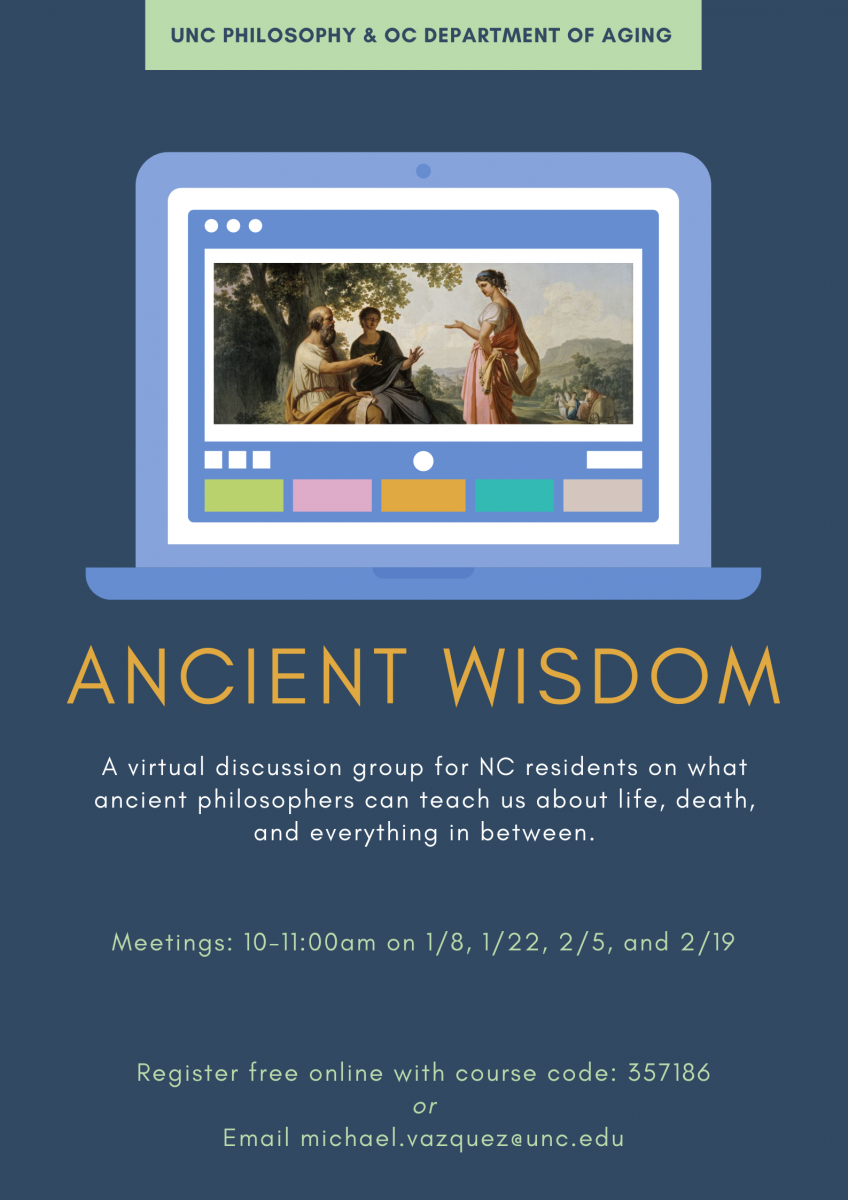
Figure 1. The poster for the Ancient Wisdom group with contact information for those interested in joining.
As a historian of philosophy and director of outreach in the philosophy department, Vazquez is overseeing a number of public outreach programs this academic year, including six different philosophy-by-mail prison programs, collaborations with high schools, service-learning programs, book clubs, and a public philosophy talk series at a local public library. The Ancient Wisdom group, Vazquez says, is particularly exciting to him as it focuses on the ancient world and directly engages with primary sources, something that is rare in outreach programs in philosophy. Vazquez is also interested in exploring philosophical topics with students of different ages and is currently teaching a course on Intergenerational Philosophy, where younger students contemplate philosophical issues alongside senior citizens.
Delaney Thull, a Ph.D. candidate in Philosophy at UNC at Chapel Hill and one of the scholar volunteers who co-facilitates and co-organizes the Ancient Wisdom group, commented on the importance of intergenerational learning:
I enjoyed getting to study these classic texts alongside group members who share practical wisdom from their long careers and family lives. So much of teaching ancient philosophy in the university setting is about theorizing the good life with young students who are thinking about the future, but reading these texts with older adults gives us the chance to consider the ancient theories alongside concrete examples from their rich life experiences.
From the perspective of the senior citizens, Ancient Wisdom has helped them come to terms with their life choices, their responsibilities, and their world views. Genie, one of the senior citizen participants, commented on the effect of Ancient Wisdom especially during the pandemic:
Our Stoicism study revealed what many in this pandemic are counseling. Make your own choices using your own strengths. Reacting to others with envy, anger, resentment disturbs personal tranquility. Today, hibernating at home throws us upon our own resources to make the best of this situation and thus achieve personal peace.
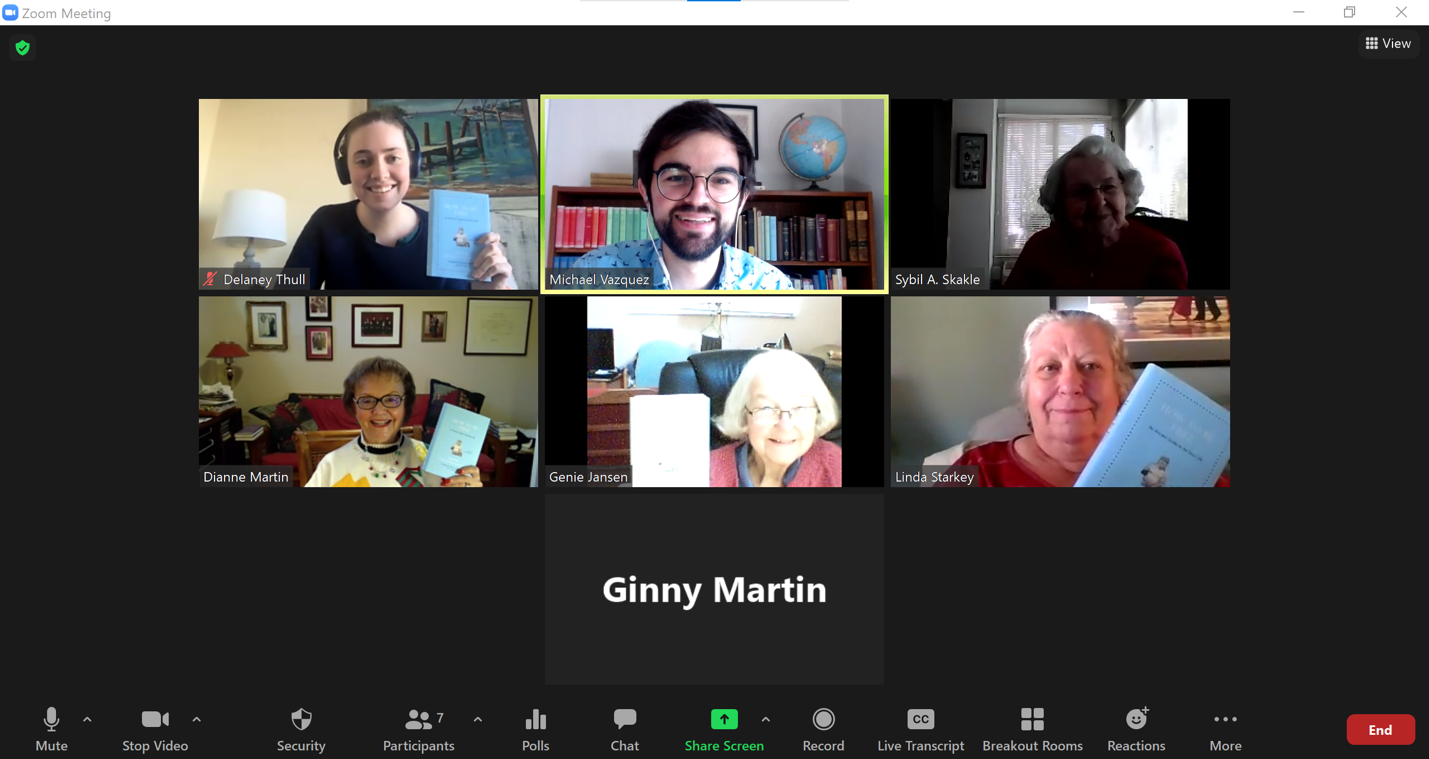
Figure 2. Ancient Wisdom participants with Michael Vazquez & Delaney Thull during a Zoom meetings. Photo by Michael Vazquez.
The pandemic and political unrest of recent months also inspired Yurie Hong, Professor of Greek, Latin, and Classical Studies at Gustavus Adolphus College and Founder of the community activism group Indivisible St. Peter/Greater Mankato, to form a virtual discussion group for her local community in southern Minnesota. A specialist in gender in the ancient world, Hong wanted to build a community that would think deeply about and take action on contemporary issues. So she invited fellow community members to join her in “Myth and Social Justice”, a reading group discussing Helen Morales’ new book Antigone Rising: The Subversive Power of the Ancient Myths. This book not only explores the ways that ancient myths have reinforced harmful narratives and practices such as racism, white supremacy, misogyny and patriarchy, but also shows how those myths can be reinterpreted so as to benefit the same groups they have so often helped to oppress.
One of Hong’s main goals for this reading group was “to demonstrate the power and relevance of the humanities for political action and personal meaning.” A believer in civic engagement and in the power of the community to motivate you into action, Hong created this group to discuss the link between democracy, education, and an engaged citizenry, and to help people understand the ways in which the past and our conceptual frames shape our actions.
Hong explains her vision further:
We’re living through such a tumultuous and troubling time. It’s so important to create spaces to be together, in ways that we can, to build community and reach out beyond our regular circles. There’s so much work to be done to create a world that’s more just, inclusive, and sustainable. By discussing the many ways that ancient Greek and Roman myths connect with modern issues, this book group gave us the opportunity to cross those boundaries and help us process some of the biggest challenges of our time.
About 20 participants of different ages and phases of life, many of whom had no prior experience in Classics, joined Hong’s reading group and participated in the lively discussions. One participant, Anastasia Hopkins Folpe, a Southern Minnesota community member, commented on her experience:
What a treat to spend a few hours discussing ‘Antigone Rising’ and the pervasive, if often hidden, influence of classical myths in contemporary life. These characters and stories still infuse patriarchy, identity, and society, even as we try to redefine them and ourselves. Author and Professor Helen Morales joined the group at the end, expanding on the many thought-provoking themes and ‘case studies’ found in the book.
Regina Olono ‘22, a Mexican-American student at Gustavus Adolphus College, reported:
This was my first true book club, and it gave me the opportunity to discuss the text with people of different ages, cultures, and ideas. I enjoyed not having to listen to the same sentiments as I do from peers in a classroom setting, and therefore the discussion felt richer.
The enthusiastic responses of this group’s participants have moved Hong to further undertakings:
For the future, I’m inspired to launch a larger community outreach project that will bring together farmers, environmental scientists, and rural community members with classics students and professors to discuss ancient and modern farming communities and the urban-rural divide. 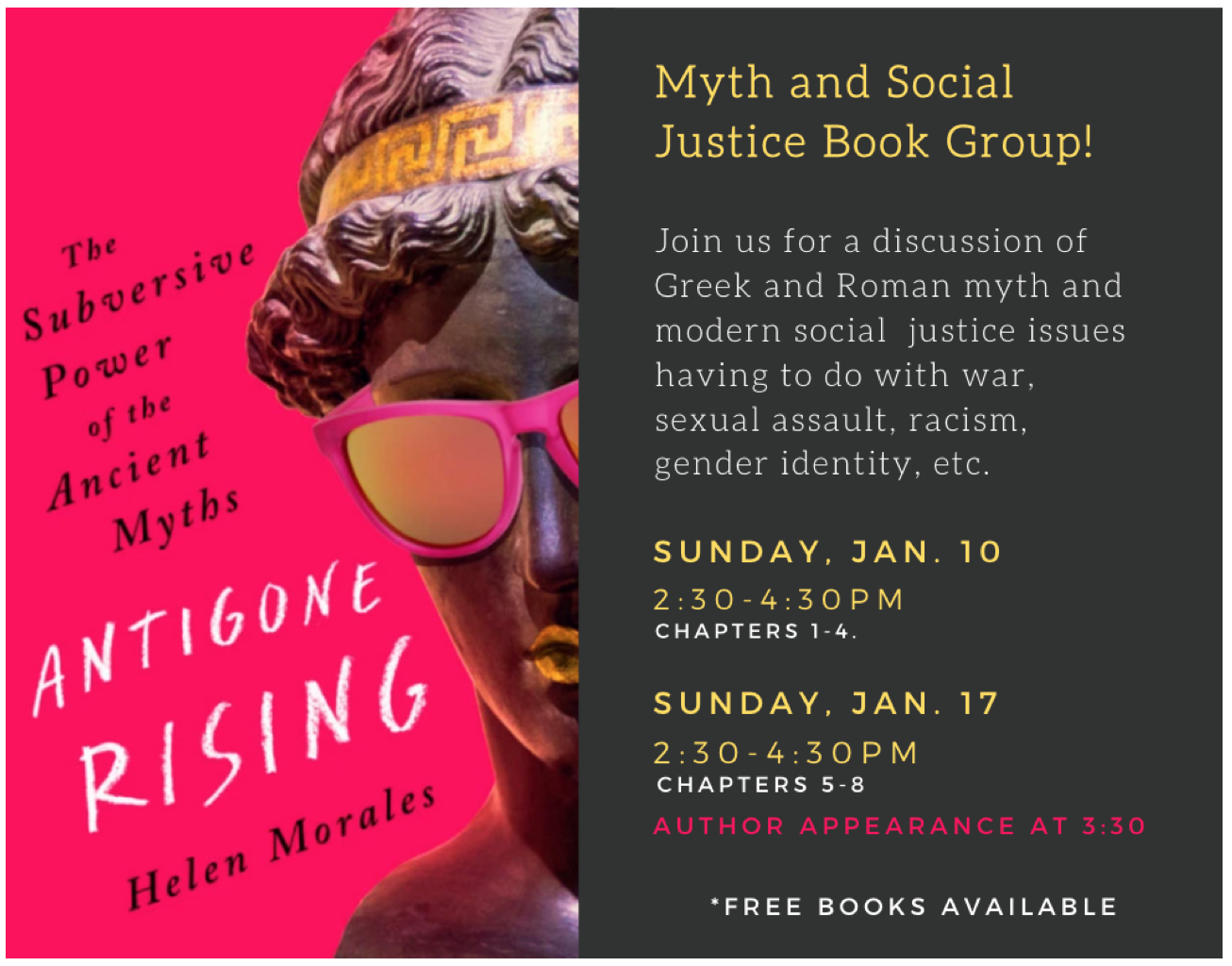
Figure 3. The flyer for the Myth and Social Justice group led by Yurie Hong.
The devastating impact of the pandemic on the arts and creative outlets has also motivated Marissa Henry, Ph.D. Candidate in Classics at UC Berkeley, to partner with the Berkeley Public Library and offer Making Myths New, a six-week virtual workshop in February and March on using Greek myths as a basis to engage in creative play.
Making Myths New will engage participants in the creative writing of short stories, poetry, and song by reading of the myths of Pandora, Persephone, and Sisyphus. Henry has found that engaging with the ancient world in more personal and creative ways makes the ancient world exciting and approachable for everyone. Creativity, she thinks, is essential for approaching life with humor and positivity, and she tries to incorporate creative projects in most of her courses. At the same time, Henry is interested in exploring the impact of myths as a cultural foundation for the modern world. Surprised when she first found out how different the original versions of the Greek myths were from the simplified versions she had enjoyed so much as a child, Henry decided to make these differences central to her workshop too.
Workshop meetings will alternate between “discussion” and “sharing” formats. Οn “discussion” weeks, participants will meet on Zoom to discuss the myth, work through guided exercises on creative writing, and be introduced to that week’s creative project. Thinking about Pandora’s myth as a metaphor for technology and imagining the story from another point of view are some examples of the work she plans to do. On “sharing” weeks, participants will share their creative projects. Henry is using funding from Classics Everywhere to bring two guest speakers, a poet and fiction writer, to guide the group during the sessions on poetry and fiction writing. Guest speaker Emlen Metz comments on the importance of composing stories:
Like Plato's Socrates, the Greek myths make us take a second look at our assumptions about ethics, power, and what makes life worth living. Stories and works of art sometimes do this more effectively than essays, because they engage us in considering alternative perspectives, rather than settling into any single position.
The workshop is open to people of all ages and walks of life and currently has over 20 participants registered. Materials for the workshop will be posted on the Making Myths New website, a resource that she is creating for the workshop and for her community at large. The website will include a set of carefully curated primary sources, retellings of the myths, and various receptions of the myths, such as novels, artworks, and videos, all of which will be used to inspire discussion and creativity.
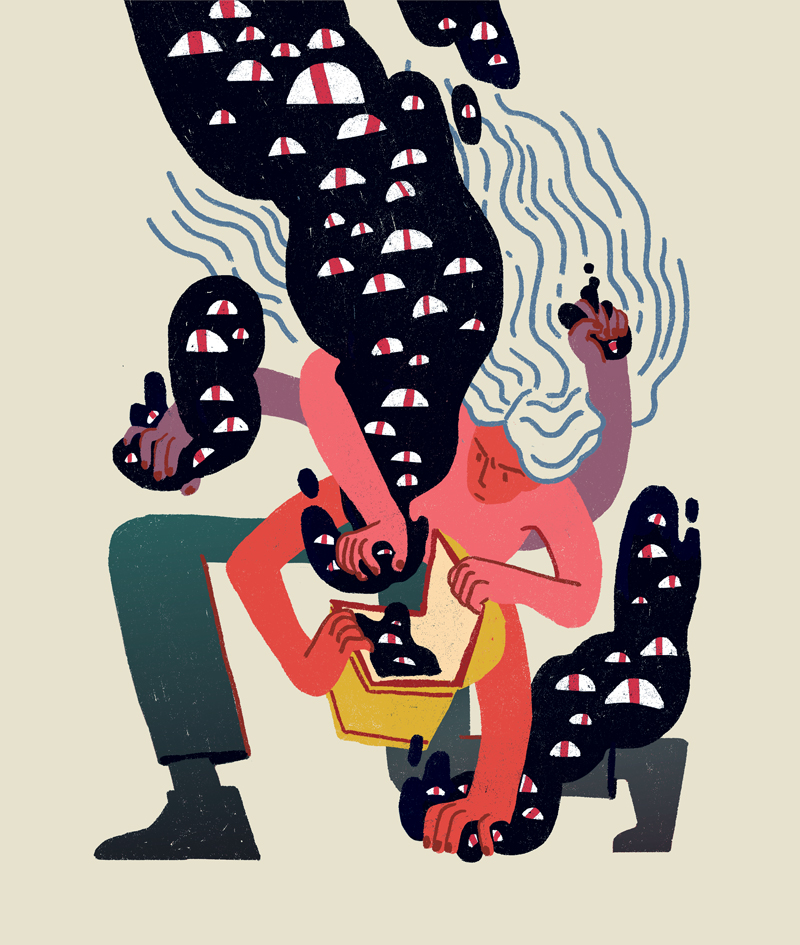
Figure 4. Pandora’s box as imagined by Taiwanese-American illustrator and cartoonist, Jean Wei. With permission from Jean Wei.
Building community, encouraging creativity, and sparking an interest for the ancient world are Henry’s main aspirations for her project:
We live in an isolating age, and the Covid-19 pandemic has made it even harder for people to find ways to connect, since in-person activities such as religious groups, musical events, and theater performances are unsafe. I hope the workshop will bring enrichment and playfulness into participants’ lives, and also leave them curious and interested in learning more about Classics.
Looking to the past, to the ideas and stories that influence our perceptions, behaviors, and life choices, is crucial for understanding the relationships that we form, the varieties of beliefs that we hold, and the values that we embrace. But we can learn from each other too – sometimes just by hearing what these tales and notions mean to those at different times of life. These new projects aim to elucidate the connections between the past and our present and to offer opportunities to think consciously about the control we have over our inner state and actions. The study of antiquity may connect us to the past, but projects like these show us how it connects us to the present and the imminent future as well.
Header image: The creation of Pandora by the Olympic gods (Courtesy of Creative Commons)
Authors
